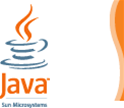
"The biggest challenge is finding something that is going to balance commercial interests with the desires of the open source community," said Stephen O'Grady, an analyst with RedMonk.
The open source community generally requests that the code is released under the General Public Licence (GPL), which requires that developers publish the code of all the changes they make.
Enterprises, however, are more fond of licences such as the BSD, Apache or Common Development and Distribution Licence, which allow them to mix the code with proprietary software without having to publish the changes.
But these licences are incompatible with the GPL, preventing the inclusion of Sun's open source Java in the Linux kernel.
"Ultimately somebody is going to be unhappy," O'Grady told vnunet.com. "It's a case of damned if you do, damned if you don't."
Sun could also adopt a dual licence, allowing users to choose between an open source and commercial licence.
While this would address some of the concerns, O'Grady argued that it would not offer a perfect solution. The commercial licence still makes it hard for enterprises to build on top of Java because it requires them to work through Sun.
Sun has not yet disclosed under which licence it will release the Java code. The company said at the LinuxWorld conference earlier this month that it will release Java under one of the 58 licences approved by the Open Source Initiative and that the first code will arrive by October.
Rich Sands, community marketing manager for Java SE at Sun, declined to comment on individual licences.
"We will try to work to satisfy as many of the stakeholders in this as we can," he told vnunet.com.
"We know we that won't be able to satisfy everybody, but we are actively soliciting input from our commercial enterprise customers and clients as well as from the open source community."
Sun has always stressed that it will try to prevent the fragmentation or 'forking' of Java, where a group of developers could split off and draft an incompatible independent version of the programming language.
But the nature of open source licences means that forks are possible, warned O'Grady.
"None of the licences will prevent [forking]. Once the code is open source, there is not a whole lot you can do in terms of preventing forks," he said.
Raven Zachary, a senior analyst with the 451 Group, argued that the GPL will best fit Sun's needs.
"The demand [for open source Java] is among the open source development community, not the enterprise," he told vnunet.com.
"It is in Sun's best interests to concern itself more about how an open source initiative for Java affects the developer community as opposed to an enterprise user base."
Sun is looking to reach developers who might be able to add compelling new functionalities to the Java technology, most of whom primarily program for Linux, according to Zachary.
"The programming language already has a strong following among enterprises," he said. "The greatest beneficiaries of open source Java are the developers."

_(33).jpg&h=140&w=231&c=1&s=0)

_(23).jpg&h=140&w=231&c=1&s=0)
_(20).jpg&h=140&w=231&c=1&s=0)





 iTnews Executive Retreat - Security Leaders Edition
iTnews Executive Retreat - Security Leaders Edition
 Huntress + Eftsure Virtual Event -Fighting A New Frontier of Cyber-Fraud: How Leaders Can Work Together
Huntress + Eftsure Virtual Event -Fighting A New Frontier of Cyber-Fraud: How Leaders Can Work Together
 iTnews Cloud Covered Breakfast Summit
iTnews Cloud Covered Breakfast Summit
 Melbourne Cloud & Datacenter Convention 2026
Melbourne Cloud & Datacenter Convention 2026
 The 2026 iAwards
The 2026 iAwards












_(1).jpg&h=140&w=231&c=1&s=0)



